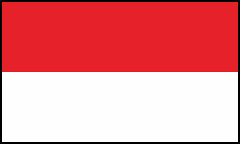On October 17, 2019, Indonesia’s Halal Product Law (“Halal Law”) came into effect. Many consumer products and related services that enter and trade in the country must be Halal-certified or otherwise label their products as “Non-Halal.” However, some products and services will have until 2022 to comply.
To avoid your confusion, you are still allowed to sell products without Halal certificate. But as a business decision, it would be unwise to try selling your products without the Halal label in a large Muslim country.
Before continuing into the details, you have to know first about the concept of Halal. It serves as a guideline for Muslims in all aspects of consumerism and consumption of products and services. Bound by the Islamic dietary laws, Muslims would check the permissibility nature of all foods and drinks before the consumption.
Furthermore, The Halal Law regulates the processing, materials, and certification of Halal products, to establish partnerships with international Halal agencies. The Halal Law assigned the establishment of the Halal Products Certification Agency (BPJPH), a new government agency under the Ministry of Religious Affairs that will issue Halal certificates through a one-stop-shop system.
What Are The Requirements To Get Halal Certification in Indonesia?
Any product that you wish to sell with the Halal label has to have a Halal Certification, from Indonesia. If you have received Halal certificates from other countries, you need to check if they are compliant with the Indonesian Halal standards.
According to the BPJPH, the mandatory Halal Labeling Law will apply to food and beverages, cosmetics, drugs, restaurants, slaughterhouses, and other consumer goods, and services related to these goods. Both manufacturers and importers or distributors can apply for the Halal certificate.
For foreign companies that are looking to export products and need to get Halal certification into Indonesia, they first must be Halal-certified by an agency from their own countries. That agency must already be registered with the BPJPH too.
A common myth that is spreading around, is that your company’s management needs to be Muslims to receive the license. Well, the truth is, as long as your company complies with the requirements, the religion of its management team is irrelevant.
You may have a question about “Do All The Ingredients Need To Be Halal?” However, you need to ensure that all of the ingredients comply with the Halal requirements, but it doesn’t mean that you will need to apply for individual licenses for each of them.
How To Get Halal Certification?
If you have a business and need to get the halal certification, you need to follow these steps.
- You need to register your company and products at the Ministry of Religious Affairs in Jakarta, because the current BPJPH office is still not ready to receive applicants and their online portal is not yet developed.
- Once your company is registered, the BPJH will issue a special registration number, which must be placed on all packaging or on the product itself.
- You need to choose an LPH (Private Halal Inspection) agency from a list provided by the BPJPH.
- Then, pay the fees. These vary depending on the size of the business.
- The LPH agency will conduct the relevant tests on your products or services, which include ingredients contained in food samples.
- The result of the testing from the LPH will be presented to the MUI (Food and Drug Research Institute of The Indonesian Ulema Council). MUI will issue a verdict on whether the product or service is classified as Halal.
What About The Fees?
Regarding the payment of fees, you will have to wait for implementing regulations from the Ministry of Finance, which the BPJPH says will be dependent on the applicants’ type of products or services, and type of business. Let’s check the details below!
- For micro-business, the BPJPH will propose to implement no fees from registration, testing, and to the issuance of the certificate.
- For medium and large-sized enterprises, the registration fees will range between Rp100.000 (US$7), and Rp500.000 (US$35).
- Testing and examination fees will range between 3.5 million Rupiah (US$248), and 4 million Rupiah (US$284), depending on the complexity of the raw materials tested.
- The certificate issuance will cost medium-sized companies between Rp150.000 (US$10) and 1.5 million Rupiah (US$106), and between 1.5 million Rupiah (US$106), and 5 million Rupiah (US$355) for large enterprises.
The Halal Law Needs More Implementation Rules
As we know, Indonesia is the country with the largest Muslim population in the world. The introduction of the Halal Law in 2014 was welcomed by many local consumers.
According to the Global Islamic Economy Report 2018/2019, Indonesian Muslims spent US$218 billion across various Islamic economic sectors, such as travel, finance, pharmaceuticals and cosmetics, and fashion.
More than US$170 billion was spent on Halal food, with many multinational FMCG and F&B companies, such as Nestlé, Kraft Heinz Unilever, KFC, and Mcdonald’s already benefiting from developing substantial Halal propositions in the country.
The government will need to speed up its implementation regulation, as they have stated there could be as much as 20 in total, and there continues to be significant amount of uncertainty among business owners.
The business owners must demonstrate the source of their raw materials and these must also be Halal-certified sources. This causes a problem as the food production chain is highly diversified, with many ingredients being sourced from all over the world.
The BPJPH, with an only functioning office in Jakarta, and currently no online platform also has difficulties to manage a large number of applicants.
In addition, the cost of registration and testing will add to the overall production costs of SME’s, in particular, those in the F&B industry, who are crucial to the economy in terms of employment.
Keep it in your mind if you want to have a business and need to get Halal certified, you need to pay attention for the details. If you are unsure about how to get the Halal certification or you don’t know yet whether your products or services need to be Halal certified, you can contact us anytime here. We will always be ready to assist you anytime!







